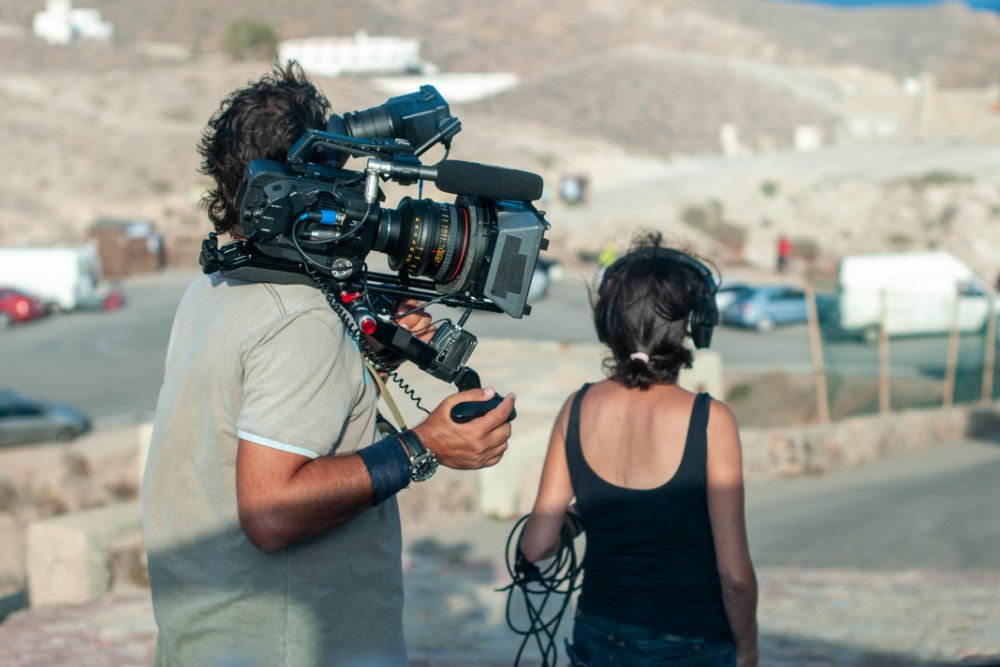"Bay Area Values." A Stalwart Regional Funder Expands its Support for Narrative Film
/photo: Giovanni Love/shutterstock
In a post looking at the William K. Bowes, Jr. Foundation's $46.4 million gift to the San Francisco Conservatory of Music, I noted that while the Bay Area's tech elite remain ambivalent about the arts, other funders in the region are a different story entirely.
To see this dynamic play out across the historically underfunded area of narrative film, consider recent developments concerning SFFILM, formerly known as SF Film Society.
SFFILM has seen it all. In 2017, the organization, which has the distinction of being the largest grant-giving body for narrative features in the country, turned 60 years old. Throughout its history, it has provided an range of support to individual filmmakers, screenwriters, and producers, including help with project development, residencies, and a number of grants.
It's also the parent organization behind the San Francisco International Film Festival, the longest-running film festival in the Americas.
SFFILM is resilient, adaptable, and forward-looking, which explains why it continues to thrive in a Bay Area grappling with rampant gentrification, growing economic inequality, and tech funders' apathy toward the arts.
On the heels of the 10-year anniversary of its SFFILM Makers program, the organization awarded a total of $100,000 to the inaugural class of its SFFILM Westridge Grants winners, bringing the total amount of funding distributed directly to independent film artists to over $1 million.
While neither figure may not knock you out of your chair, consider the larger context. After USC turned down Harvey Weinstein's $5 million pledge to support women filmmakers, I explored philanthropy's relatively light footprint in the cinematic arts space. For instance, scan Hollywood Women's (non-exhaustive) list of grants for female filmmakers, and you'll see that the largest grant, at $120,000, is the Women in the Director's Chair Telefilm Nominee.
It's an impressive amount, and that's because it's an outlier. Most grants listed by Hollywood Women hover around $10,000. This kind of individual support generally lags behind funding opportunities in the visual arts, music and theater fields in terms of grant size and the number of grants available.
Zoom in further, and you'll also see that while funders like the Sundance Institute, the MacArthur Foundation, and the Tribeca Film Institute give to the cinematic arts, grants are typically earmarked for documentaries.
Late last year, citing this "imbalance between grants available to fiction filmmakers as opposed to documentarians," SFFILM launched the Westridge Grants program in partnership with the Westridge Foundation to "support the screenwriting and development phases of narrative feature projects whose stories focus on the significant social issues and questions of our time."
(For the record, much less is publicly available about the San Francisco-based Westridge Foundation beyond its spartan website and mission statement to "support individuals, organizations, institutions, and programs dedicated to promoting community and/or national social good.")
Westridge Grants are open to U.S.-based filmmakers whose stories take place primarily in the United States. SFFILM received over 350 applications for its first open call.
In addition to the cash grants, the five recipients will receive various benefits through SFFILM's artist development program, as well as support and feedback from SFFILM and Westridge Foundation staff. Grantees will also spend one week in the Bay Area attending a programmed retreat geared towards honing their craft, strengthening their scripts, and making connections to other filmmakers and industry professionals.
A closer look at the inaugural grant winners underscores the degree to which SFFILM is attuned to the larger arts philanthropy Zeitgeist.
First, as film funders continue to grapple with widespread gender inequity—according to the Center for the Study of Women in Television and Film at San Diego State University, women accounted for just 9 percent of directors in 2015—the Westridge Grants program is ahead of the curve. Sixty percent of winning projects are led by women filmmakers.
In addition, 100 percent of winners are first-time narrative feature writer/directors, while 100 percent are new to SFFILM’s support programs.
Winners also ascribed to the pervasive belief across the donor community that the arts can be a vehicle for social change. Winning films address issues like xenophobia, police brutality, and prescription drug addiction. "This diverse group of filmmakers represents bold artistic voices tackling the issues shaping our country’s cultural discourse," SFFILM's press release reads.
SFFIFLM has proven to be prescient in this area as well.
Previously, SFFILM helped fund Beasts of the Southern Wild, Short Term 12 and Fruitvale Station. The latter film, which explored the events leading to the death of Oscar Grant, a young man who was killed in 2009 by a BART police officer in Oakland, won the Grand Jury Prize and the Audience Award for U.S. dramatic film at the 2013 Sundance Film Festival.
SFFILM also partners with another influential Bay Area funder concerned with "inspiring social change," the Kenneth Rainin Foundation. Rainin-supported funding opportunities include SFFILM/Rainin Filmmaking Grants for the production of narrative films with "social justice themes," Producer Fellowships, and Women Filmmaker Fellowships.
In an interview with the San Francisco Chronicle, SFFILM's Caroline von Kuhn articulated the guiding philosophical principle behind the funder's grantmaking. "In deciding which films to support," she said, "we ask, does it have social relevancy, does it exemplify Bay Area values?"
Rachel Rosen, the SFFILM Festival's programming director since 2009, defines these values as "adventurousness, a spirit of exploration, a certain openness and acceptance, humanism, an interest in social issues, experimentation and open-mindedness."
Applications are now being accepted for the Fall 2018 round of Westridge Grants. The final deadline to apply is July 31. Find out more at sffilm.org/makers.







































